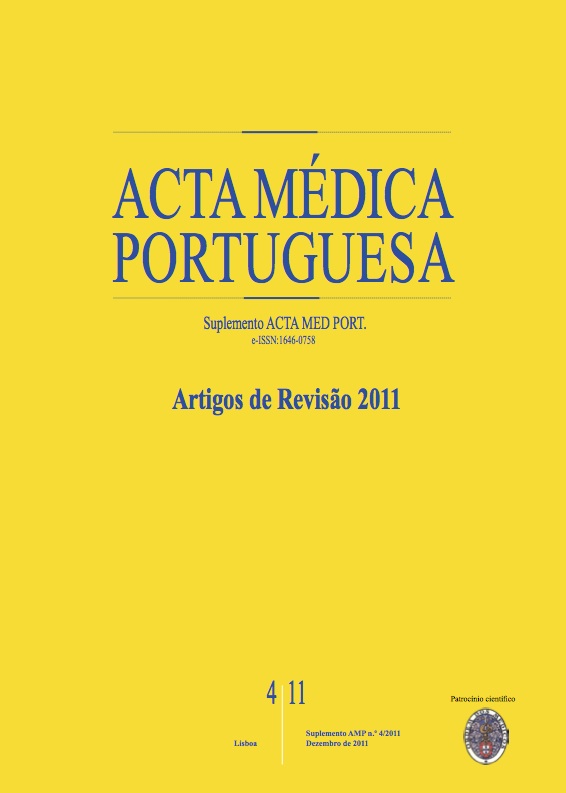The role of major histocompatibilit y complex in the progression of HIV infection.
DOI:
https://doi.org/10.20344/amp.1576Abstract
Despite being uncommon, there is a small group of HIV infected that, even without treatment, do not evolve to AIDS. Several theories have been proposed over time trying to explain this phenomenon. This article addresses the role of HLA in the TC modulation.Review the literature about the role of MHC in the progression of HIV infection and identify which HLA has a greater role in the progression of HIV infection.There were included 24 original articles (19 per bibliographic search, four for cross reference and one by a survey of recently published articles) Development - Unlike humans, chimpanzees can prevent the progression of HIV disease. Their HLA has also a greater similarity with the HLA of LTNP. These phenotypes of progression of infection are the result of a combination of protective and progressive factors. Among the protective factors are HLA class I molecules, especially HLA-B. Several studies have been published on this subject and showed that the main HLA not involved in the progression of the HIV infection are HLA B27 and B57. A study recently published was able to show that variations in specific amino acids have been associated with the management of HIV infection.It is now thought that the major genetic factor capable of modulating the progression of HIV infection is the HLA-peptide interaction and more research is needed so that knowledge can be used to support the treatment of patients infected with HIV infection.Downloads
Downloads
How to Cite
Issue
Section
License
All the articles published in the AMP are open access and comply with the requirements of funding agencies or academic institutions. The AMP is governed by the terms of the Creative Commons ‘Attribution – Non-Commercial Use - (CC-BY-NC)’ license, regarding the use by third parties.
It is the author’s responsibility to obtain approval for the reproduction of figures, tables, etc. from other publications.
Upon acceptance of an article for publication, the authors will be asked to complete the ICMJE “Copyright Liability and Copyright Sharing Statement “(http://www.actamedicaportuguesa.com/info/AMP-NormasPublicacao.pdf) and the “Declaration of Potential Conflicts of Interest” (http:// www.icmje.org/conflicts-of-interest). An e-mail will be sent to the corresponding author to acknowledge receipt of the manuscript.
After publication, the authors are authorised to make their articles available in repositories of their institutions of origin, as long as they always mention where they were published and according to the Creative Commons license.









